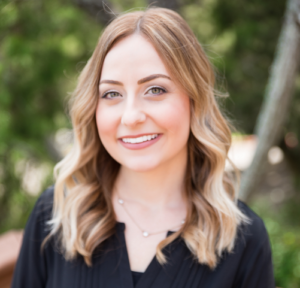
Many treatment options are available for those struggling with substance use disorders or addiction. The first step of entering any kind of treatment program is receiving a clinical assessment to help know if residential treatment is needed.
This assessment helps the treatment team develop an individualized treatment plan and help discern which level of care (ranging from outpatient to inpatient care) best suits the needs of the individual struggling with substance use. This assessment should be conducted by a fully licensed clinician who specializes in substance use disorders.
What is residential treatment?
Residential treatment is a resource-intense high level of care, generally for individuals with more severe levels of substance use whose mental health status, medical needs, and substance use behaviors require a 24-hour structured environment to make recovery possible.
Residential treatment is as it sounds — it is where the individual lives or resides at the facility, staying 24-hours a day, while receiving treatment services. If residential treatment is needed, several models of treatment (such as the therapeutic community) exist, and treatment in these programs typically last from a month to a year or more.
Residential treatment programs may differ in some ways, but they tend to be similar in many ways. Residential programs often have phases of treatment, with different expectations and activities during each phase. For example, in the first phase, an adult’s contact with family, friends, and job may be restricted.
An adolescent may be able to have contact with his or her parents but not with friends or with school. This restriction helps the person become part of the treatment community and adjust to the treatment setting. In a later phase, a person may be able to start working again, going “home” to the facility every evening.
Due to longer lengths of stay, many residential programs offer education or career-focused components. For example, some programs offer general equivalency diploma (GED) preparation classes, training in job-seeking skills, and even career training. In residential programs for adolescents, the participants attend school as a part of the program.
 Some residential programs are designed to enable women who need treatment to bring their children with them.
Some residential programs are designed to enable women who need treatment to bring their children with them.
These programs offer childcare and parenting classes. Residential programs tend to be best for people who do not have stable living or employment situations and/or have limited or no family support.
If residential treatment is needed, be sure to evaluate their offerings as they can vary greatly. It is often helpful to visit different centers and see what may be the best fit for the individual needing treatment. The most important part of choosing a rehab center is selecting one that fits an individual’s unique recovery needs. Finding the right fit is essential for a successful long-term recovery.
Sources:
1. Center for Substance Abuse Treatment. What Is Substance Abuse Treatment? A Booklet for Families. HHS Publication No. (SMA) 14-4126. Rockville, MD: Substance Abuse and Mental Health Services Administration, 2004. Retrieved from https://store.samhsa.gov/system/files/sma14-4126.pdf
2. National Institute on Drug Abuse. (2012, December). Principles for Drug Addiction Treatment: A Research-Based Guide (Third Edition). Retrieved from https://www.drugabuse.gov/publications/principles-drug-addiction-treatment-research-based-guide-third-edition/drug-addiction-treatment-in-united-states
3. National Institute on Drug Abuse. (2014, January 14). Principles of Adolescent Substance Use Disorder Treatment: A Research-Based Guide. Retrieved from https://www.drugabuse.gov/publications/principles-adolescent-substance-use-disorder-treatment-research-based-guide
About the Author:
 Chelsea Fielder-Jenks is a Licensed Professional Counselor in private practice in Austin, Texas. Chelsea works with individuals, families, and groups primarily from a Cognitive Behavioral Therapy (CBT) and Dialectical Behavior Therapy (DBT) framework.
Chelsea Fielder-Jenks is a Licensed Professional Counselor in private practice in Austin, Texas. Chelsea works with individuals, families, and groups primarily from a Cognitive Behavioral Therapy (CBT) and Dialectical Behavior Therapy (DBT) framework.
She has extensive experience working with adolescents, families, and adults who struggle with eating, substance use, and various co-occurring mental health disorders. You can learn more about Chelsea and her private practice at ThriveCounselingAustin.com.
The opinions and views of our guest contributors are shared to provide a broad perspective of addictions. These are not necessarily the views of Addiction Hope, but an effort to offer a discussion of various issues by different concerned individuals.
We at Addiction Hope understand that addictions result from multiple physical, emotional, environmental and genetic factors. If you or a loved one are suffering from an addiction, please know that there is hope for you, and seek immediate professional help.
Published July 3, 2019 on AddictionHope.com
Reviewed by Jacquelyn Ekern, MS, LPC on July 3, 2019
